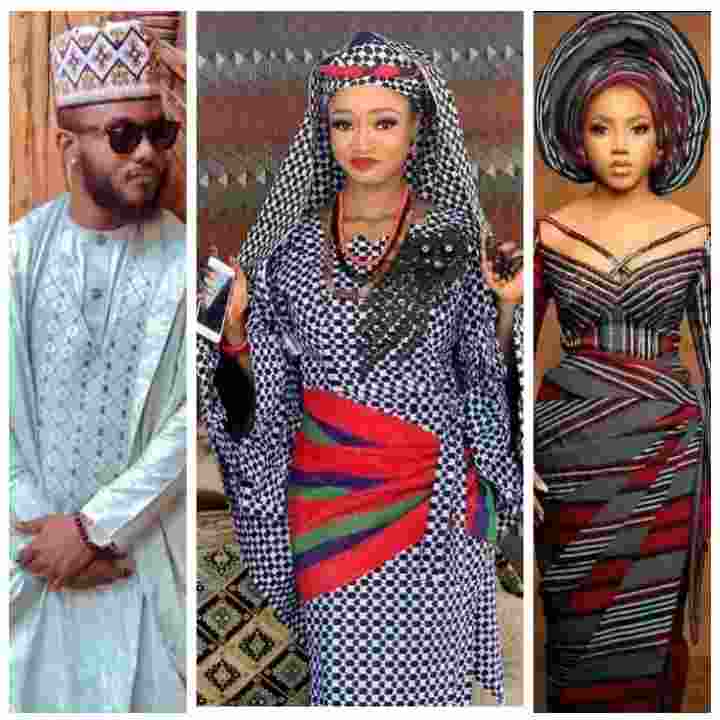Nigeria, a country rich in cultural diversity, boasts a wide array of traditional dresses that reflect the heritage and identity of its various tribes. These traditional attires are not only visually stunning but also hold significant historical and cultural value. In this article, we will explore the top 10 most beautiful traditional dresses in Nigeria, their history, state of origin, the names of their dresses, the tribes that wear them, and their population.
1. Eko-Kpara and Kpasa
The Nupe tribe, residing in the North Central region of Nigeria, is famous for their picturesque and skillfully weaved traditional garments.
Their women adorn themselves with Eko-Kpara and Kpasa Colorful, which features hues of blue, red, and green. Other dresses belonging to the Nupe tribe include Gboko Taba, Nnadzwa Ebwa, Ede Zwangun, and Ede Donko. The Kpasa garment is usually crafted using fabric and embellished with striking designs and embroidery.
Likewise, Nupe men wear Ewo-ko, a loose and comfortable robe often paired with a matching cap. With a vast population of more than 8 million, the Nupe tribe holds a treasure trove of cultural heritage, encompassing their wood art, beads, music, drums, and traditional festivals. You can spot the Nupe people in several states like Niger, Abuja, Kogi, Kwara, Edo, and Kaduna.
2. Kaftan
Kaftan is a flowing robe worn by both men and women in Nigeria. It is made from various fabrics, including silk, cotton, and lace. Kaftan is popular among different tribes in Nigeria, including the Nupe, Hausa, Yoruba, and Igbo. The Hausa tribe, with a population of over 30 million, is renowned for their elegant and intricately designed Kaftans.
3. Aso Oke
Aso Oke is a traditional Nigerian fabric woven from cotton and silk threads. It is commonly worn by the Yoruba people, particularly during weddings and festivals. This attire is known for its vibrant colors and intricate patterns. The Yoruba tribe, with a population of over 40 million, embraces Aso Oke as an essential part of their cultural heritage.
4. Agbada
Agbada is a grand flowing robe worn by men in Nigeria. Originating from the Yoruba tribe, this attire is characterized by its voluminous sleeves and intricate embroidery. The Yoruba people, with a population of over 40 million, predominantly wear Agbada during special occasions and ceremonies.
5. Buba and Sokoto
Buba and Sokoto is a traditional attire worn by both men and women in Nigeria. It consists of a loose-fitting blouse (Buba) and matching trousers (Sokoto). This attire is popular among the Yoruba, Hausa, and Igbo tribes. The Hausa tribe, with a population of over 30 million, is known for their exquisite Buba and Sokoto designs.
6. Dashiki
Dashiki is a colorful, loose-fitting tunic worn by both men and women in Nigeria. It originated from the Yoruba tribe but has gained popularity across the country. Dashiki is often adorned with intricate embroidery and vibrant patterns. The Yoruba tribe, with a population of over 40 million, proudly showcases their Dashiki heritage.
7. George Wrapper
George Wrapper is a traditional Nigerian dress worn by women, particularly in the Igbo tribe. It is a long, flowing garment made from silk fabric and often embellished with sequins and beads. The Igbo tribe, with a population of over 30 million, cherishes the George Wrapper as a symbol of their rich cultural heritage.
8. Isiagu
Isiagu is a pullover shirt worn by men in the Igbo tribe. It is made from a special fabric adorned with lion or leopard motifs. Isiagu is often worn during cultural events and ceremonies. The Igbo tribe, with a population of over 30 million, takes pride in their Isiagu attire, which represents strength and bravery.
9. Iro and Buba
Iro and Buba is a traditional Nigerian attire worn by women. It consists of a wrapper (Iro) and a blouse (Buba). This attire is widely embraced by the Yoruba tribe and is often worn during special occasions and ceremonies. The Yoruba tribe, with a population of over 40 million, showcases their cultural heritage through the Iro and Buba.
10. Etibo
Etibo is a traditional Nigerian attire worn by men, particularly in the Niger Delta region. It consists of a long-sleeved shirt, trousers, and a hat. Etibo is known for its unique embroidery and is often worn during cultural festivals and events. The Niger Delta region is home to various tribes, including the Ijaw, Urhobo, and Itsekiri.
